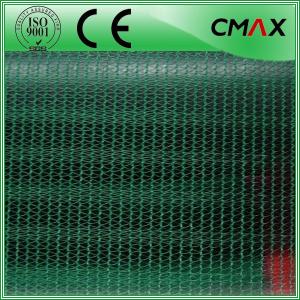Plastic Garden Netting: Defending Your Greens
Gardening is more than just a hobby for many; it’s a passion, a way of life, and a connection to nature. But as much as we love our greens, there are forces at work that threaten to undermine our efforts. From pesky insects to overzealous wildlife, our gardens are under constant siege. That’s where plastic garden netting comes in, offering a simple yet effective solution to protect our precious plants.
The Beauty of Plastic Garden Netting
Plastic garden netting is a versatile and affordable material that can be used in a variety of ways to protect your garden. It’s lightweight, easy to install, and can be found in various mesh sizes to suit different needs. Whether you’re looking to keep birds away from your berries or rabbits out of your vegetable patch, plastic netting is up to the task.
Why Choose Plastic Over Other Materials?
When it comes to garden protection, there are many options available, from metal to organic materials. But plastic netting offers several advantages that make it a top choice for many gardeners. It’s durable, resistant to weather conditions, and easy to clean. Plus, it’s cost-effective, meaning you can protect your garden without breaking the bank.
Easy Installation and Maintenance
Setting up plastic garden netting is a breeze. Simply measure the area you want to cover, cut the netting to size, and secure it in place using stakes or a frame. Maintenance is just as simple; a quick rinse with a hose is usually all it takes to keep the netting in top condition. No need for complicated cleaning routines or special care.
The Role of Netting in Pest Control
One of the primary roles of plastic garden netting is pest control. It acts as a barrier, preventing pests from reaching your plants. This is particularly useful for organic gardeners who prefer not to use chemical pesticides. By using netting, you can maintain a healthy, chemical-free garden while still keeping pests at bay.
Protecting Your Harvest from Wildlife
In addition to insects, plastic garden netting can also protect your harvest from larger wildlife. Squirrels, rabbits, and deer can be particularly destructive, but a well-placed net can keep them from feasting on your fruits and vegetables. This is especially important for gardeners in rural areas or those living near wooded areas where wildlife is more prevalent.
Caring for Your Netting
While plastic garden netting is low maintenance, it’s still important to take care of it to ensure it lasts. Store it properly during the off-season to prevent damage from sunlight and weather. Regularly inspect the netting for any signs of wear and tear, and replace it as needed. With proper care, your netting can provide years of protection for your garden.
The Emotional Connection to Our Greens
Gardening is not just about growing plants; it’s about the emotional connection we have with our greens. The satisfaction of watching a seedling grow into a thriving plant, the joy of harvesting fresh produce, and the pride in knowing that you’ve nurtured something with your own hands – these are the feelings that drive us. Plastic garden netting helps us preserve these moments by protecting our gardens from harm.
The Future of Gardening with Plastic Netting
As we look to the future, the use of plastic garden netting is likely to continue to grow. With environmental concerns and a push for sustainable gardening practices, plastic netting offers a solution that aligns with these values. It’s reusable, easy to recycle, and can be a part of a greener gardening approach.
In Conclusion
Plastic garden netting is more than just a tool; it’s a guardian for your garden. It’s a way to protect your plants, your harvest, and your passion for gardening. By choosing to use plastic netting, you’re making a decision that benefits both your garden and the environment. So, the next time you’re out tending to your greens, remember the simple yet powerful role that plastic garden netting plays in your gardening journey.

